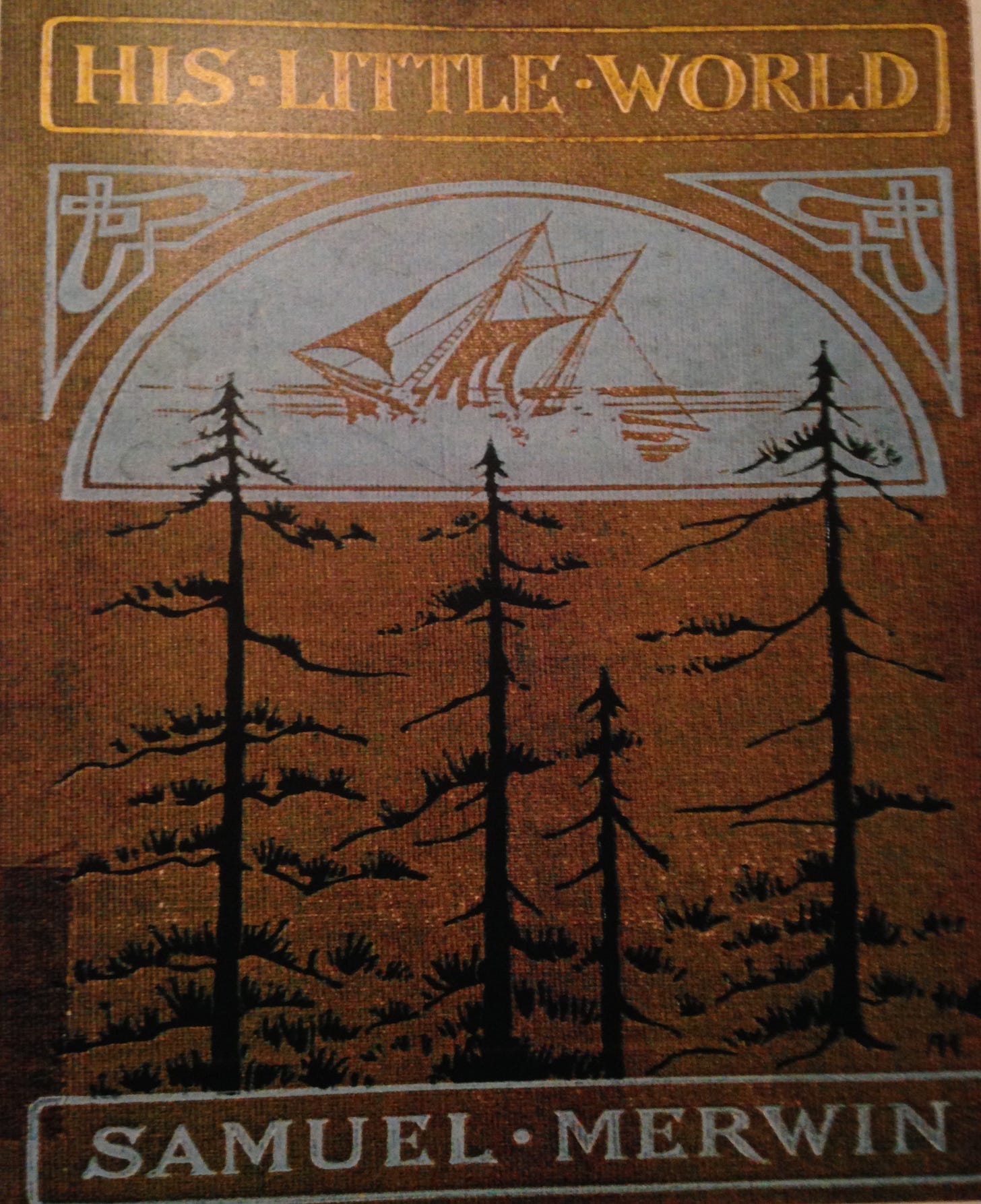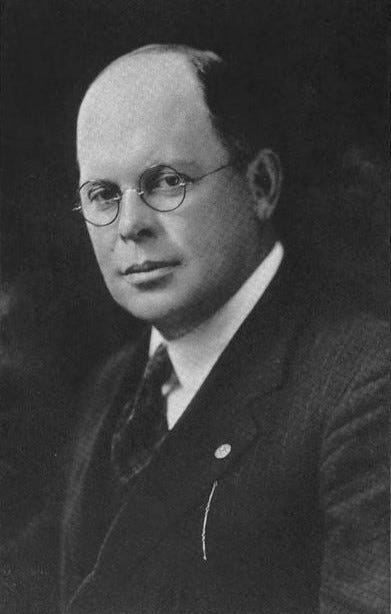“Steadily the sky thickened, and fine, hard flakes of snow began to blow about their ears”
MichLit: His Little World: The Story of Hunch Badeau (1903) by Samuel Merwin
Half-way through Samuel Merwin’s short novel, His Little World: The Story of Hunch Badeau, a seasoned lakes captain makes an error in judgement that costs him his boat and nearly his life.
“When the Dean finally fell away from the wharf, in tow of Jackson’s tug, it was well on toward noon. And none of the three men on board was over-cheerful when he looked out at the lake and felt the keen wind of the open water. Even on shore it was a day for heavy jackets and gloves; out here it was bitter cold...
Badeau kept her up a few points to the westward in order to avoid the surf-currents that bore down on Point Sable. The deck was piled so high with timber that the schooner was unwieldy, and the stern was down so low in the water that half the time the small boat, hanging from the after davits, was afloat…
Rapidly the piers and the bluffs of Manistee fell off astern. Steadily the sky thickened, and fine, hard flakes of snow began to blow about their ears.”1
Badeau makes more than one bad decision in the name of love but the kindly author—after knocking his protagonist about for a few hundred pages—set all aright for Hunch in the end.
Though not a badly written story, His Little World is not overly memorable for its plot or its characters. What made the novel interesting to me was Merwin’s journalistic portrait of the working life of a “square-nosed lumber schooner…just big enough to carry her two masts.”2 Badeau’s boat is modeled on the flat-bottomed, shallow-draft wooden schooners (also called “scows”), hundreds of which carried on the commerce of the Great Lakes. Moving everything from shingles to salt, these unglamorous vessels served until they fell apart from hard use or foundered. Some were still under sail as late as the 1920s, some even later as converted barges.
Literary critic, Robert Cortes Holliday, editor at Doubleday and The Bookman and a contemporary of Merwin, called him “a man with an itch for getting the picture right.”3 Though spare, Merwin’s sketches of the little coastal towns of Ludington and Manistee are convincing. Born in Evanston in 1874, Merwin knew from experience the ties between Chicago and Michigan’s small and large ports. The character of “the grim old life-saver on the night patrol near Ludington” he drew from personal acquaintance.4
It is in the descriptions of work that Merwin’s writing is most “fresh, strong, and real”:
“The sky was heavy and a roaring wind blew from the lake. Half a dozen steamers and two schooners had made the harbor since daybreak, and each had a story of hard struggling with wind and sea, stories which spread rapidly along the river, causing more than one outbound captain to shake his head and resolve to wait a few hours or a day longer.
On the horizon a row of schooners, barges, and freighters were holding their noses against the sea, until it should be safe to run for the harbor. A little nearer a big whaleback was tossing and rolling badly….A few tugs hung about inside the basin, looking for a stray job at advanced rates.”5
His Little World: The Story of Hunch Badeau was not Merwin’s only book about working life in Michigan. Two other novels are also set against a backdrop of Michigan’s working life: The Whip Hand (1903) and The Merry Anne (1904).
Notes
1 His Little World: The Story of Hunch Badeau, by Samuel Merwin (New York: A.S. Barnes & Co., 1903). Illustrations by Alonso Kimball
2 Ibid
3 A Chat about Samuel Merwin: Containing also a list of his published volumes, together with sundry excerpts from critical appreciations by Robert Cortes Holliday (Indianapolis: Bobbs-Merrill Company, 1921)
4 Michigan in Literature, by Clarence A. Andrews (Detroit: Wayne State University Press, 1992)
5 Merwin, His Little World: The Story of Hunch Badeau





